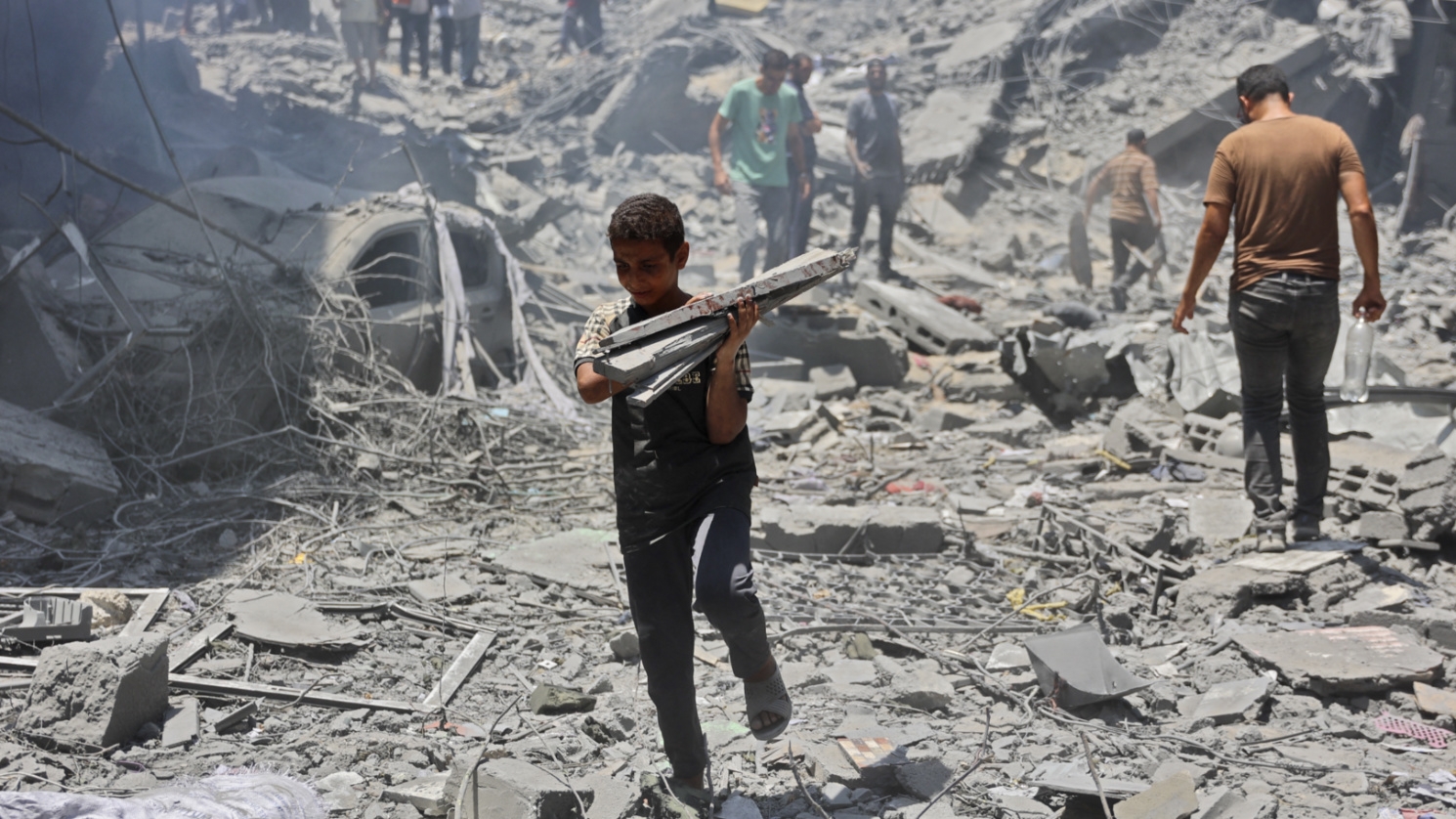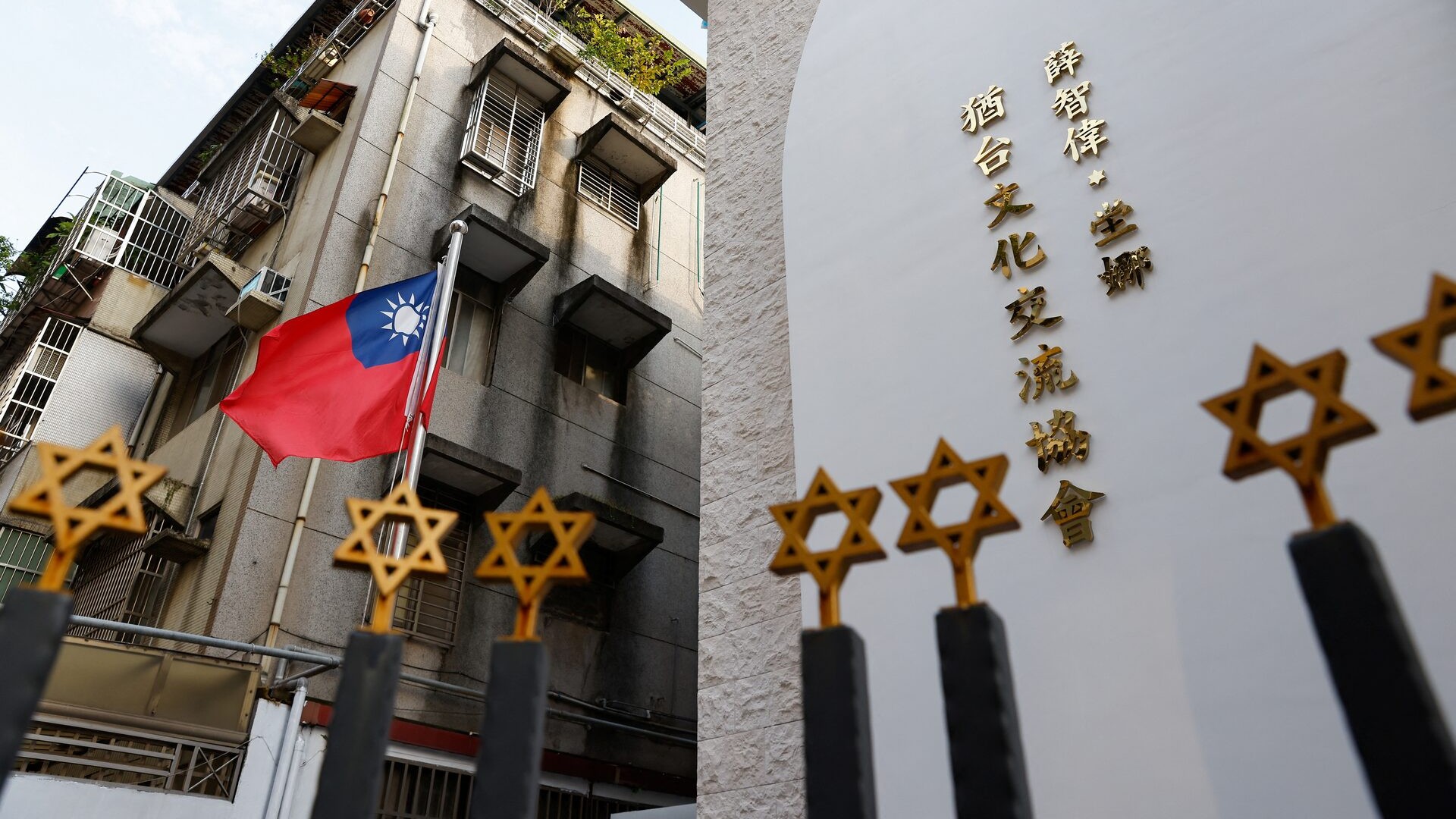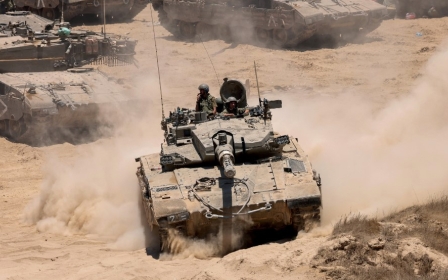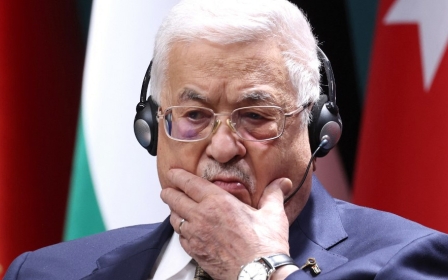Gaza live: Israeli attack hits Unrwa centre

Live Updates
Israeli forces have bombed a home in Shati refugee camp, west of Gaza City.
BREAKING: Israeli warplanes bomb a location in the Al Shati refugee camp in Gaza City. pic.twitter.com/mP3VazrF7y
— Quds News Network (@QudsNen) June 22, 2024
Gaza's health ministry said that 101 Palestinians were killed in Israeli attacks in the past 24 hours, bringing the total to 37,551 people killed in the enclave since 7 October.
Additionally, 85,911 people have been wounded since the war began.
In a bid to break out of Israel's growing international isolation, an Israeli parliamentary delegation visited Taiwan in late April, highlighting the strengthening relationship between the countries.
This trip marked the second such cross-party Israeli delegation within a year. Despite lacking official diplomatic ties, the two sides share similar historical circumstances. Israel was founded in 1948 and Taiwan was founded in 1949. Both serve as sanctuaries for their respective political projects.
Relations between the two sides have noticeably warmed since the Hamas-led 7 October attack on Israel that killed more than 1,100 people.
Following the assault, Taipei donated more than half-a-million dollars to Israel to help soldiers and their families and to fund municipal services.
READ MORE: Why Israel and Taiwan are forging a closer relationship
Good morning Middle East Eye readers,
Here are the latest updates:
- The Israeli military denied being responsible for an attack on a camp in Gaza's Mawasi, a coastal designated safe area for people fleeing bombing elsewhere in Gaza, which killed at least 25 people
- One resident told Reuters two tanks climbed a hilltop overseeing Mawasi and sent "balls of fire" that hit displaced people's tents
- According to CNN, the US reassured Israel it would back its ally should an all-out war break out with Hezbollah in Lebanon
- Two rockets from Gaza landed in an open area near Kibbutz Sufa
- An Israeli was shot and killed in the occupied West Bank city of Qalqilya, with Israeli troops now entering the area
Our live coverage from Gaza will shortly be closing until tomorrow morning.
Here are some of the day's key developments:
- At least 25 Palestinians killed, 50 wounded in an Israeli strike in Mawasi, western Rafah.
- Andrew Miller, a senior US State Department official who served as deputy assistant for Israeli-Palestinian affairs, resigned from his post, citing family obligations.
- The Israeli army has carried out two attacks on the southern Lebanese town of Khiam, on the border with Israel, according to Lebanon's state-run National News Agency.
- Iran’s mission to the United Nations said that Hezbollah can defend both itself and Lebanon against Israel, warning that “perhaps the time for the self-annihilation of this illegitimate regime has come".
- Qatar has reported some progress in the Gaza ceasefire talks, though gaps remain between Israel and Hamas.
- UN chief Antonio Guterres said Lebanon must not be "another Gaza".
The Israeli army reported that it has carried out air strikes in four different locations in southern Lebanon targeting Hezbollah.
It posted on X a video of what it says are the locations targeted, which included a military facility in the Khiam area, a military position in Mis al-Jabal, and other points in Atiba and Talusa in southern Lebanon
A senior US State Department official who served as deputy assistant for Israeli-Palestinian affairs said on Friday that he was resigning from his post, citing family obligations, according to a report by the Washington Post.
The newspaper reported that Andrew Miller told his colleagues he had seen his family "sparingly" amid the Israeli war on Gaza that has been going on for more than eight months.
The Post further reported that Miller was one of the officials in the administration who recognised the risks of President Joe Biden's administration's "bear hug" strategy, referring to the full-fledged support Washington gave to Israel after it launched a war on Gaza following the 7 October attacks by Hamas.
"Andrew brought deep experience and sharp perspective to the table every day," State Department spokesman Matthew Miller told the Post. "Everyone here is sorry to see him go, but we wish him well in his next endeavors."
Miller is now the most senior official with an Israel-Palestine portfolio to step down from his job since the war on Gaza began in October.
Read more: Senior US State Department official and expert on Israel-Palestine resigns amid Gaza war
A UK-based research group published the findings of a forensic investigation on Friday, revealing that Hind Rajab, the six-year-old Palestinian girl found dead along with members of her family in northern Gaza earlier this year, was most likely killed by Israeli tank fire.
The investigation found that the car in which Rajab was killed had been hit with 355 bullets, with most of the entries coming from the right side of the vehicle. The investigation was conducted by Forensic Architecture, Al Jazeera's Fault Lines and the NGO Earshot.
Forensic Architecture said that the gun used for this attack was "firing at a range of 750–900 rounds per minute", and that this range exceeds that of the AK-type assault rifle that is commonly attributed to Palestinian fighters operating in Gaza.
Read more: Forensic Architecture probe concludes Israeli tank likely killed Palestinian child Hind Rajab
The World Health Organisation Chief Tedros Adhanom said no patients have left the Strip since the war broke out in Gaza on 7 October.
He said that more than 10,000 patients are in dire need of medical care, including cancer and heart disease patients.
He wrote on X: “medical evacuations must be facilitated through all crossings.”
The Israeli army said that an initial investigation denies earlier reports of shelling the tents of displaced Palestinians in Mawasi, western Rafah.
It added that an investigation is underway.
Earlier, the Gaza health ministry said at least 25 Palestinians were killed and 50 injured when Israeli shelling targeted tents of Palestinians in Mawasi.
The commissioner-general of the United Nations Relief and Works Agency for Palestine Refugees (Unrwa), Philippe Lazzaraini, explained why aid is still being constrained in Gaza.
In a post on X, he said that “Israeli military operations and armed Palestinian groups’ activities” were the top reasons for aid restrictions.
He added that the lack of security for humanitarian workers, a near total breakdown of law and order ,and “regular denials and delays by Israeli forces” for coordinated movement and convoys, were also to blame.
Israel’s Foreign Affairs Minister Israel Katz said his country will make “necessary decisions” amid escalating tensions between his country and Lebanon’s Hezbollah.
“Israel cannot allow the Hezbollah terror organization to continue attacking its territory and citizens, and soon we will make the necessary decisions,” he posted on X.
He added: “The free world must unconditionally stand with Israel in its war against the axis of evil led by Iran and extremist Islam.”
Tensions between Israel and Hezbollah have taken a sharper edge, following Israel’s threat of a “full-scale war” against Hezbollah, followed by the group’s leader Hassan Nasrallah’s warning there would be no “safe place” in Israel if a war erupted.
Medecins Sans Frontieres, also known as Doctors Without Borders, has warned that it could potentially stop or drastically reduce activity in Gaza, if the situation in the besieged enclave does not change.
“This is an unthinkable reality given the desperate medical needs of thousands of people in Gaza,” said Guillemette Thomas, MSF’s medical coordinator in Palestine.
The organisation said its teams have not been able to deliver any medical aid into the Strip since the end of April, and now access to Gaza has worsened with the Israeli invasion in Rafah.
“The closure of the Rafah border crossing, following Israel’s offensive in the south of Gaza in early May, coupled with the endless red tape imposed by Israeli authorities, have dramatically congested the flow of humanitarian aid through the Kerem Shalom [Karem Abu Salem] entry point,” MSF said in a statement.
It added that Gaza is facing “massive queues of trucks and perilous delays in the delivery of humanitarian assistance.”
The Israeli army has carried out two attacks on the southern Lebanese town of Khiam, on the border with Israel, according to Lebanon's state-run National News Agency.
Al Jazeera said it had verified a video from the area showing large plumes of smoke rising from the village.
Israeli forces bombed displacement tents, municipal workers operating water wells and homes across Gaza on Friday, killing over 75 people according to Al Jazeera Arabic, on one of the deadliest days for Palestinians in weeks.
Artillery shelling and gunfire from Israeli tanks targeted displaced people sheltering in Rafah's coastal al-Mawasi area, previously declared a “humanitarian zone” by the Israeli military.
At least 25 Palestinians were killed in the attack and 50 wounded, the Palestinian Ministry of Health said.
Hours earlier, an Israeli strike hit a municipality facility in Gaza, killing at least seven people, including five workers operating water wells.





